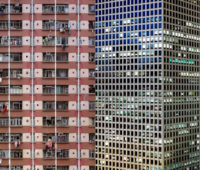Urban settlements are today the home of 249 million people in the United States, which is 81% of our population. It is precisely why in our most populated cities we find most modern jobs. The increase in urban population also implies limited infrastructure and space constraints. This is not just simple overcrowding translated to longer […]
How can the core characteristics of big cities be mobilized to make human life more just and democratic? Premised on the centrality of urban space to human experience and the great challenges and opportunities produced by urban concentration across the globe, the Social Science Research Council’s initiative on The Decent City seeks to deepen understanding and improve practice by creating interactions among social scientists, humanists, architects, designers, and urban planners. The Cities Papers are thought pieces produced by scholars and practitioners from all these perspectives who participated in several gatherings to further shape the initiative’s agenda.
A “decent” city, in our usage, is not quiet, orderly, or predictable, each of which is alien to robust urban life. The term is meant to imply a site of reflection, research, and policy in a zone between more utopian reflections on the one side and highly focused instrumental policy considerations on the other. Substantively, it connotes cities in which built environments and the organization of space diminish and soften various dimensions of inequality and promote relations among diverse populations that are neighborly. We are deploying a spatial imagination to interrogate design, toleration, and inequality as key concepts and sites as we search for thresholds of urban decency and means to achieve them.
How to Navigate the Data Deluge: Ecometrics and the Case for the Urban Social Sciences
by Robert J. Sampson and Daniel O’BrienThe recent emergence of large-scale administrative data sets, or “big data,” has inspired much attention and discussion in the sciences as well as society more broadly. One of the metaphors for this event has been the “data deluge.” This metaphor seems apt on a number of levels; not only does the amount of newly available […]
Spatial Data Science for an Enhanced Understanding of Urban Dynamics
by Luc AnselinThe advent of the big data era has created both opportunities and challenges for the study of urban phenomena. In this brief essay, I formulate some thoughts on its role in stimulating an emerging methodological “interdisciplinarity,” that I like to refer to as spatial data science, and on the potential for this spatial data science […]
The Promise and Perils of Big Data for Social Science Research
by Joscha LegewieIn the late 19th century, Charles Booth painstakingly assembled color-coded maps of London describing wealth, poverty, and despair street-by-street. Technological advances over the following century made demographic information on the neighborhood level from the U.S. Census easily accessible to researchers and the public at large. Fast forward to the early 21st century, and large-scale, administrative […]
Urban Planning and Community Data Collection Efforts in the Developing World: Data as a Facilitator
by José LoboThe historical experience of the now-developed economies is that urbanization accompanied and fostered industrialization, economic growth, and productivity increases (Henderson, 2003; Montgomery 2008). But the process of urbanization now unfolding in the developing world seems much more mixed in outcomes, as the negative effects resulting from overcrowding, environmental degradation, and inadequate services can sometimes negate […]
Bringing Social Science Back In: The “Big Data” Revolution and Urban Theory
by Robert J. Sampson and Mario Luis SmallIn December 2014, the Radcliffe Institute for Advanced Study at Harvard brought together 40 scholars from a wide range of disciplines in the social and natural sciences to talk about the future of “big data” in social science research. Major technical advancements have given social scientists access to new forms of data and sophisticated analytical […]
Unhappiness and Urban Decline
by Ed GlaeserThe Center for Disease Control’s Behavioral Risk Factor Surveillance System, or BRFSS (http://www.cdc.gov/brfss/), is old -style big data: over 400,000 telephone surveys each year focused primarily on the physical health of America. Following the pioneering work by Andrew Oswald and Stephen Wu (http://ftp.iza.org/dp4600.pdf), economists have begun using the BRFSS for its questions on life satisfaction […]
Can Machine Learning Be Useful for Social Science?
by Cynthia RudinIt is obvious that the answer to the question in the title of this essay is “yes.” However, the philosophies between the social science fields and machine learning are very different, and some clarity should be provided on how machine learning tools can mesh with the study of sociological theories. Many sociologists start with a […]
Issues of Construct Validity and Reliability in Massive, Passive Data Collections
by David LazerWe are at the beginning of a data-driven transformation of our understanding of human society. Data are at the foundation of any science, and currently vastly more data than ever before are being collected on human behavior, and it is likely that these data will result in a transformation of our understanding of human society. […]
Big Data for Good Cities
by Emily TalenThis essay considers Big Data and its research potential from a normative point of view; specifically, from the perspective of urban planning and design. First, some background. There is a kind of urbanism that is now firmly planted in the urban planners’ consciousness. It replaces the twin calamities of suburban sprawl and urban decay by […]













